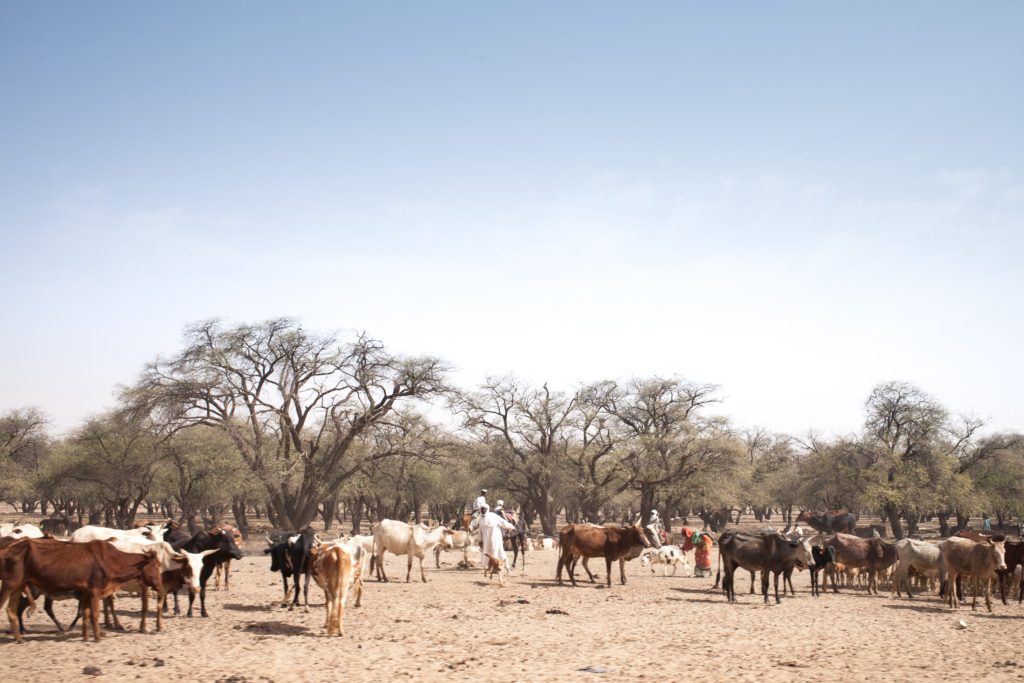The Chadian authorities have failed to protect the victims of armed clashes between herders and farmers as well as their right to truth, justice, and reparations, Amnesty International said in a new report.
“Live off the land and die for it: Human rights violations in conflicts between herders and farmers in Chad” documents seven episodes of herder-farmer violence – driven among other reasons by climate change pressures – in four provinces between 2022 and 2024 that left 98 people dead, more than 100 injured, and hundreds of families without homes or sources of income. In total, there are thousands of victims of these clashes, according to the United Nations data shared over the last years.
“Faced with recurring violence between herders and farmers, the authorities are failing to adequately protect the population. The security forces’ response is often delayed, and those suspected of killings, looting, and destruction of property are rarely brought to justice, fueling a sense of impunity and marginalization within communities,” said Agnès Callamard, Secretary General of Amnesty International.
Deadly violence amid climate change
On 26 August 2019, in the village of Sandana, in Moyen-Chari, a conflict that started with cattle trespassing on a field escalated: seven people were killed, eight wounded, and more than 140 cattle were stolen. On 9 February 2022, another attack in the same village left 13 people dead.
Several less publicized attacks are documented in the report, including in Pala Koudja, in Logone Occidental. On 30 August 2024, the repeated trespassing of a herd into a field triggered a violent altercation between herders and farmers, leaving three people dead and seven wounded. During the night, unidentified individuals set fire to 53 homes.
Tensions between herders and farmers are exacerbated by demographic pressure, the effects of human-induced climate change, particularly on herd movements, and competition for access to natural resources. Rising temperatures in the center of the country have led many herders to move further south for grazing or to settle in the southern provinces, while at the same time farmers seek to expand and diversify their production.
The effects of climate change will only fuel more clashes between herders and farmers. This makes it all the more urgent to find structural, sustainable solutions based on human rights.
Agnès Callamard, Secretary General of Amnesty International
Clashes are often triggered by incidents such as livestock trampling fields or crops blocking herding corridors, and can affect entire communities.
“We laid the bodies on the road in protest”
The authorities are struggling to respond quickly to protect the population, despite prior warnings about escalating conflicts by the communities and an increase in the Ministry of Public Security’s budget since 2022. The minister in office in May 2023 confirmed that there had been “delays in responding when villages are attacked.”
A community leader from a village in Logone Oriental said: “Since 2014, we have had a problem with herders, and I reported it to the canton chief and the sub-prefect [local government officials], but no response was given. In 2023, we were attacked by a group of armed people. The toll was 18 people killed and 11 wounded. We were angry and laid the bodies on the road in protest.”
Despite the existence of conflict prevention and management mechanisms set up by the authorities, their lack of coordination and structural inefficiency, limit their ability to prevent and resolve conflicts. In addition, testimonies indicate that certain local administrators entrust their privately owned cattle to armed herders. This arrangement compromises administrative neutrality and facilitates abuses.

Structural responses urgently needed
Although several instances of violence between herders and farmers have led to legal proceedings, impunity remains a strong feature of these cases. Of the seven waves of clashes documented in the report, only three have resulted in trials. Thirty-seven people were convicted following those trials.
“Under regional and international human rights law and standards, the Chadian state has an obligation to guarantee the safety of everyone in the country, investigate crimes, bring those responsible to justice, and ensure victims of these crimes have effective access to the courts,” said Agnès Callamard.
“The effects of climate change will only fuel more clashes between herders and farmers. This makes it all the more urgent to find structural, sustainable solutions based on human rights. This requires strengthening the presence of law enforcement agencies, implementing a proactive disarmament policy, establishing a coherent legal framework for transhumance, revitalizing joint conflict prevention committees, and implementing a national climate change adaptation plan.”
Background
This report is based on research conducted between March 2023 and September 2025 in 14 villages in four provinces in southern Chad. Amnesty International interviewed 110 people, including 70 victims and/or witnesses of conflict. The report’s findings were sent to the Chadian authorities on 25 June 2025. At the time of publication, Amnesty International had not received a response.





